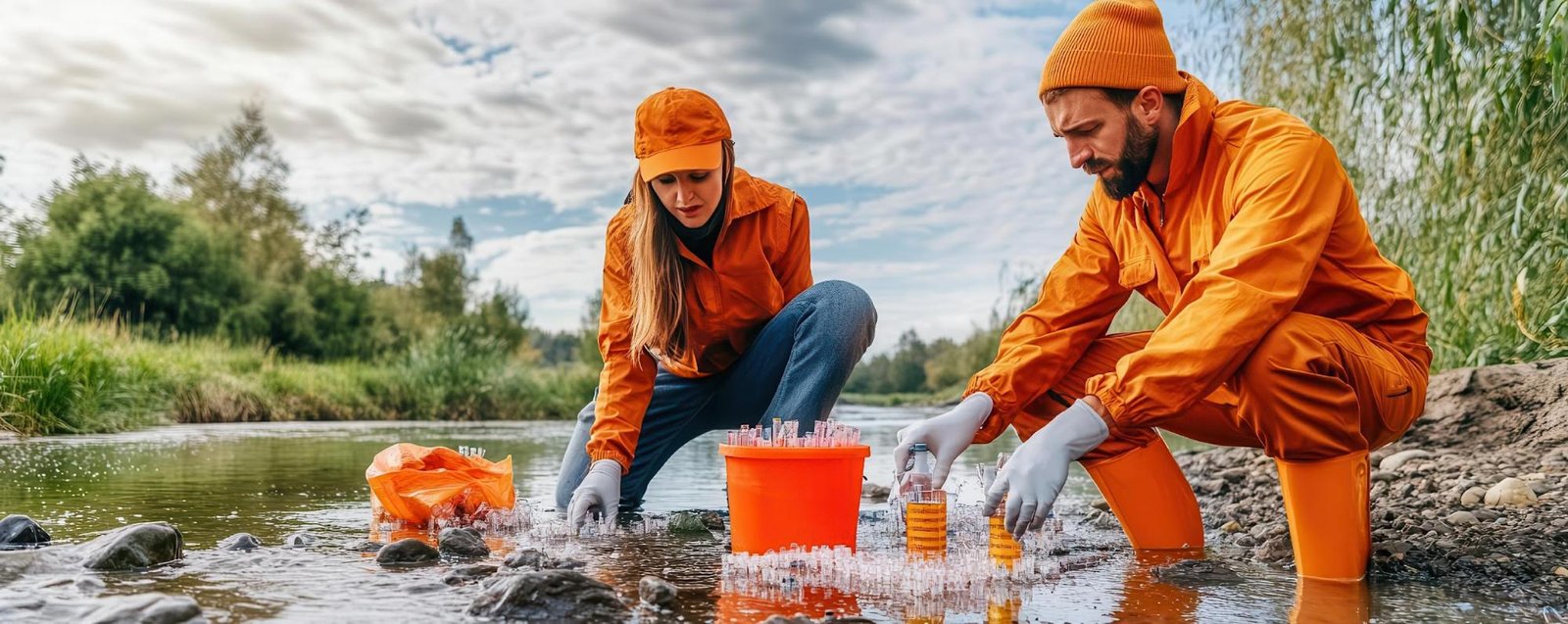It is well accepted that the planet’s natural resources have been, and still are, ‘mined’ and consequently depleted for the sake of the financial and economic returns they yield.
For the past four centuries, nature has essentially bankrolled our growth and success. Yet, there has been a relentless intensification of agriculture, and a construction boom that has asserted the primacy of built development. We are, quite simply, reaching a tipping point. Global biodiversity has fallen to a critically low level. Meanwhile, at home, the UK has a 60% decline in species abundance and is now one of the most nature-depleted countries on Earth.

Image: two surveyors checking river.
Our sheer numbers and extravagant ways put nature and our future in jeopardy. It’s imperative we change course and somehow restore the planet’s ravaged biodiversity if we hope to prosper. The COP27 conference must recognize biodiversity restoration and Net Zero as a means to combat the existential threat we face.
The corporate economic future and that of society are closely connected to the world’s natural resources and ecosystem functions. Virtually half of the global GDP depends directly on the raw materials we get from nature.
The rich variety of life on Earth gives us our foods, our clean air, that clean and plentiful water, the natural storage facilities we should and could rely on to keep the pollution we emit from getting up into the atmosphere, the plants we depend on for our everyday medicines, the much-overlooked animals that help keep key plant species around, and the stability of our natural ecosystems.

Image: surveyor in orange jacket smiling.
A systematic approach is thus needed to replace not just as much nature as we consume but also more nature than we consume. The corporate world must also embrace this same vision and work towards becoming ‘Nature Positive’—that is, working to a regime where the natural environment is restored at the scale and speed necessary to avert any prospect of a collapse of the ecosystems on which we rely.
Biodiversity Day at COP 27 involved holding nations to account for pledging to reduce carbon emissions.


